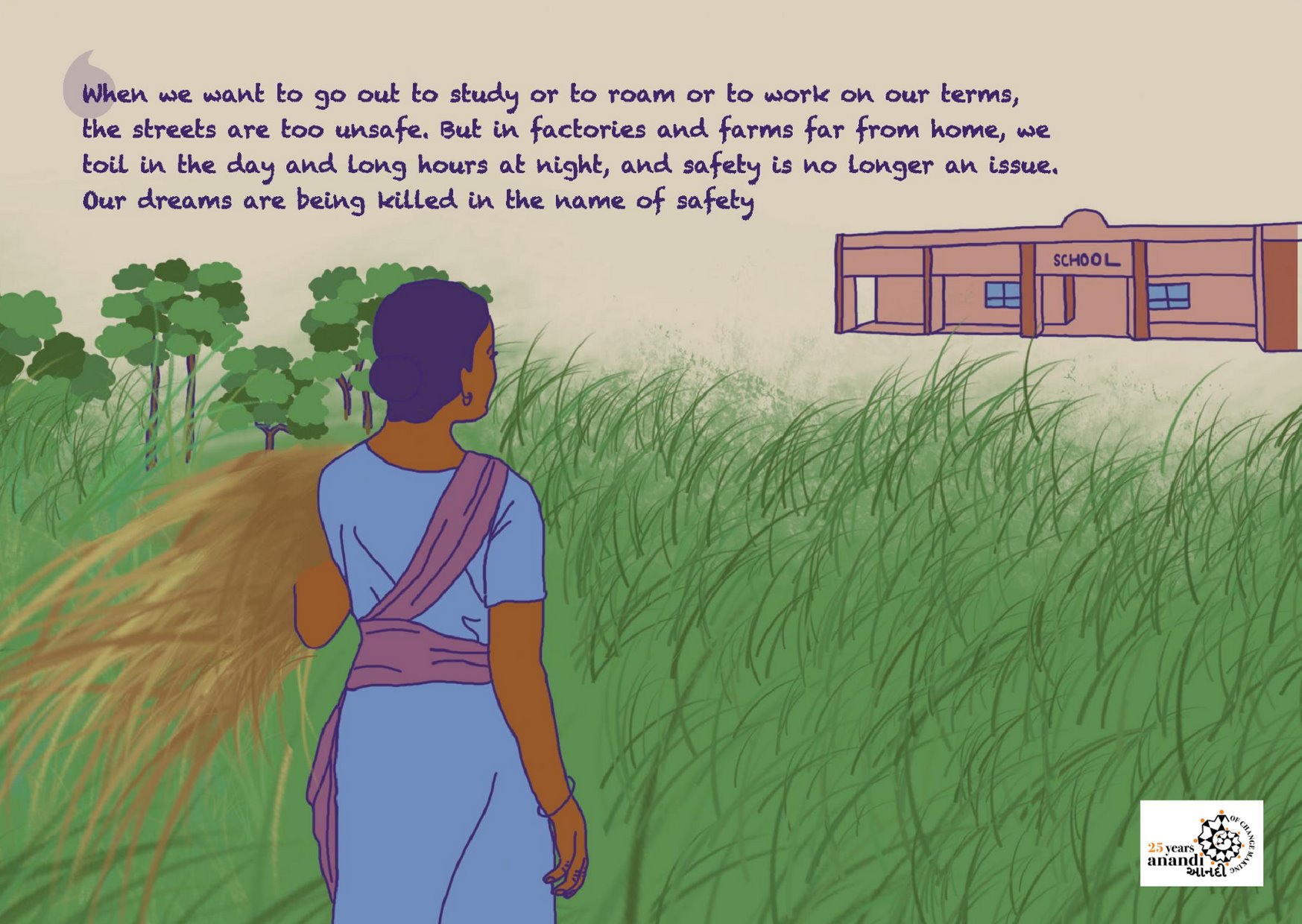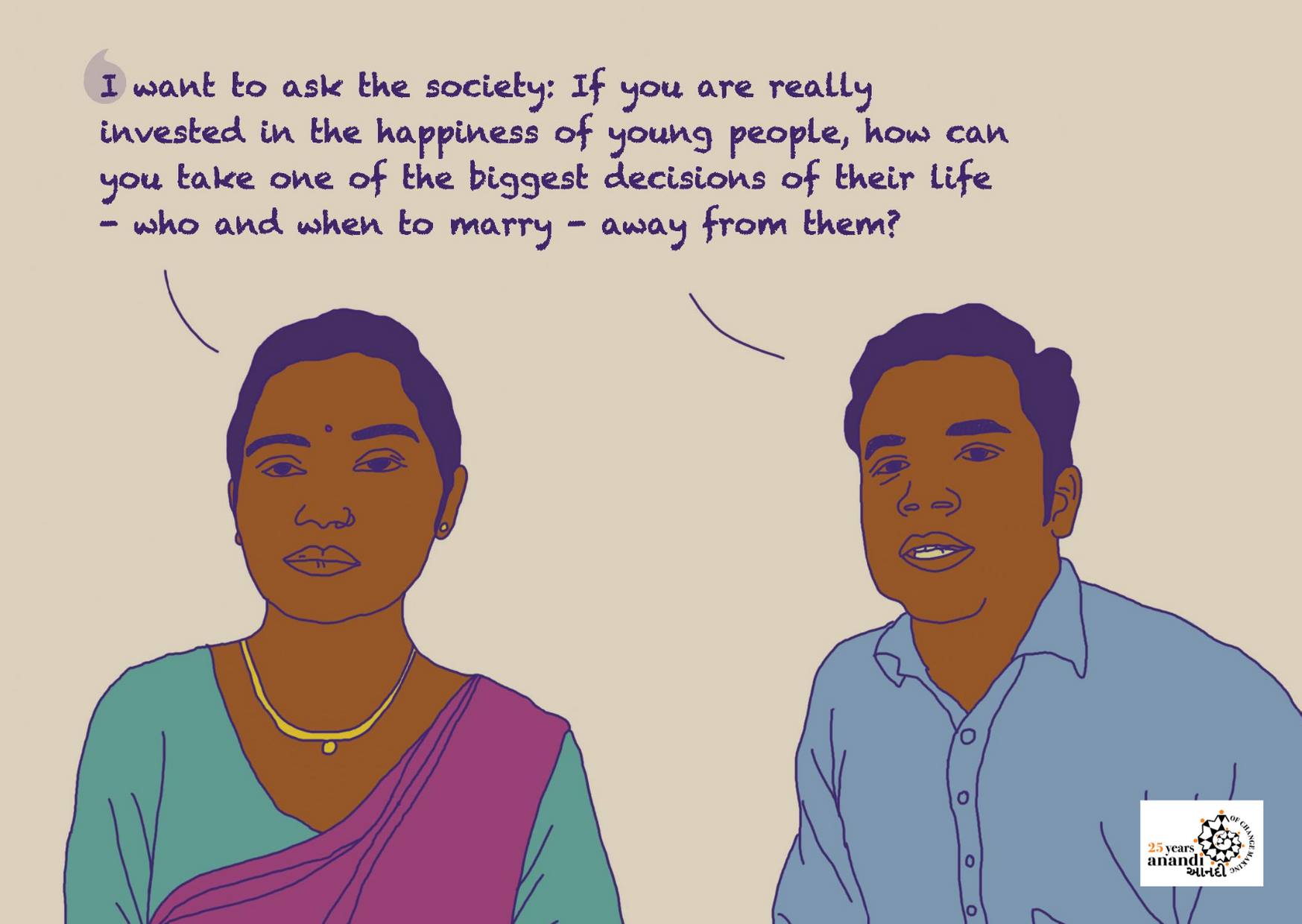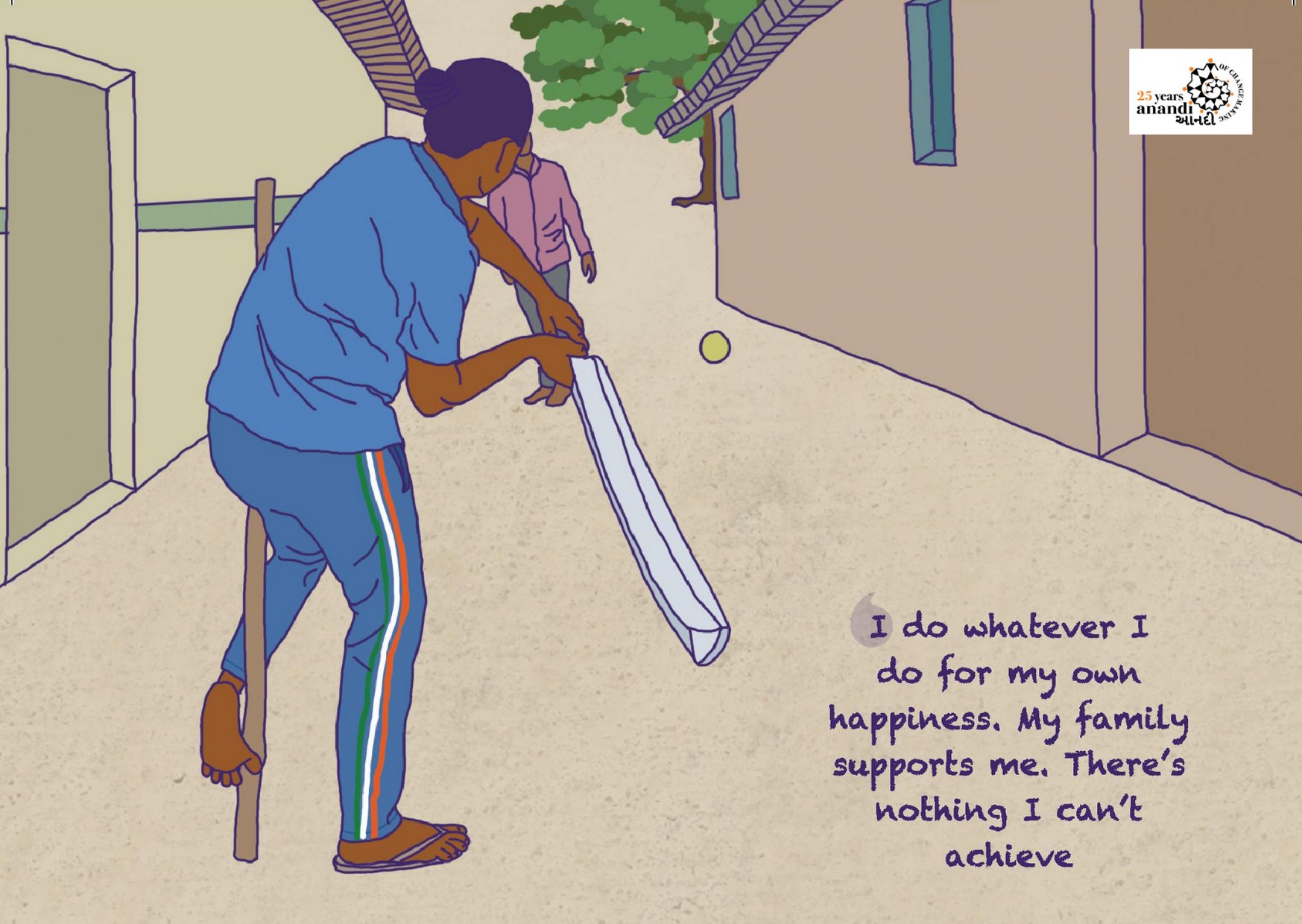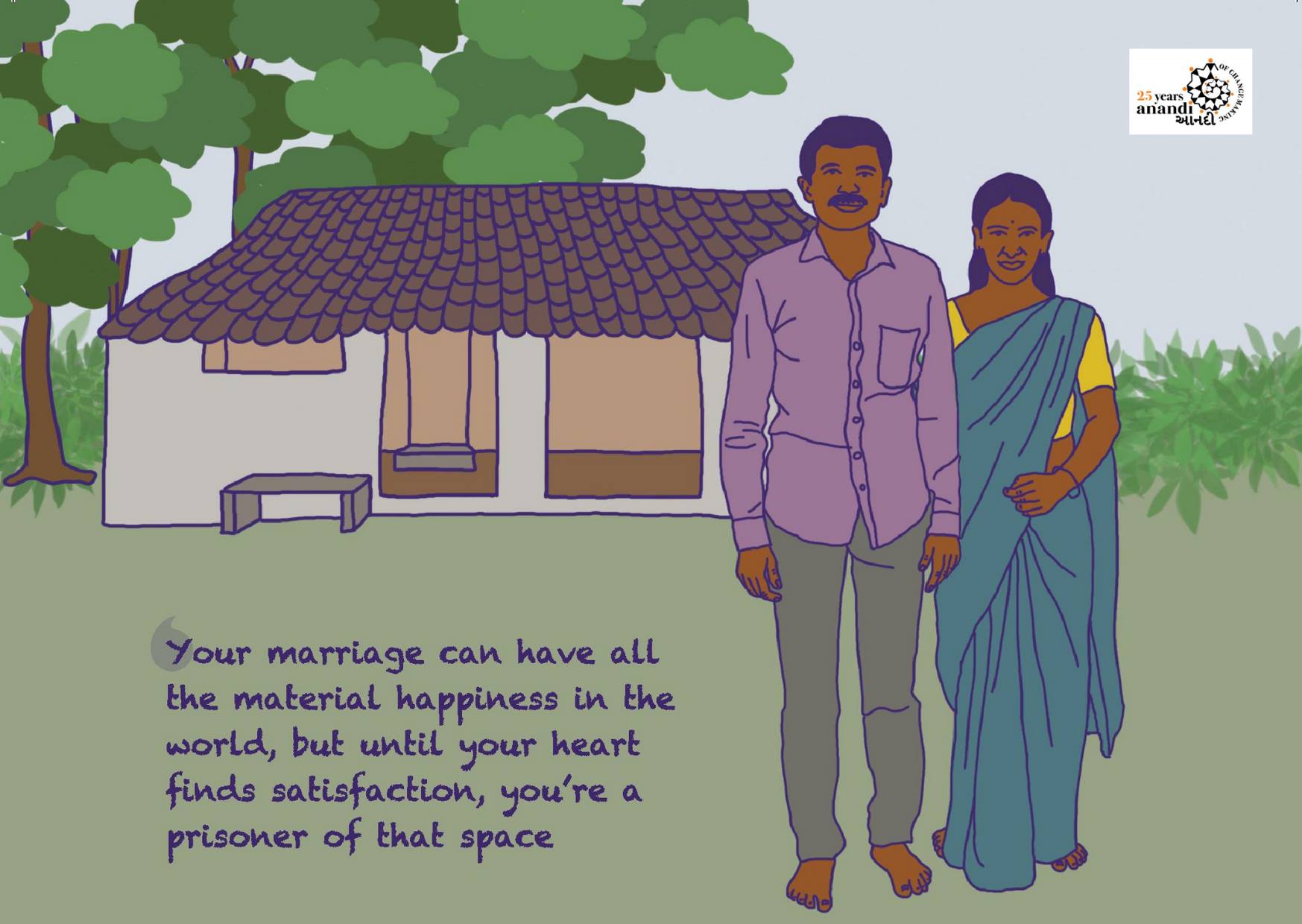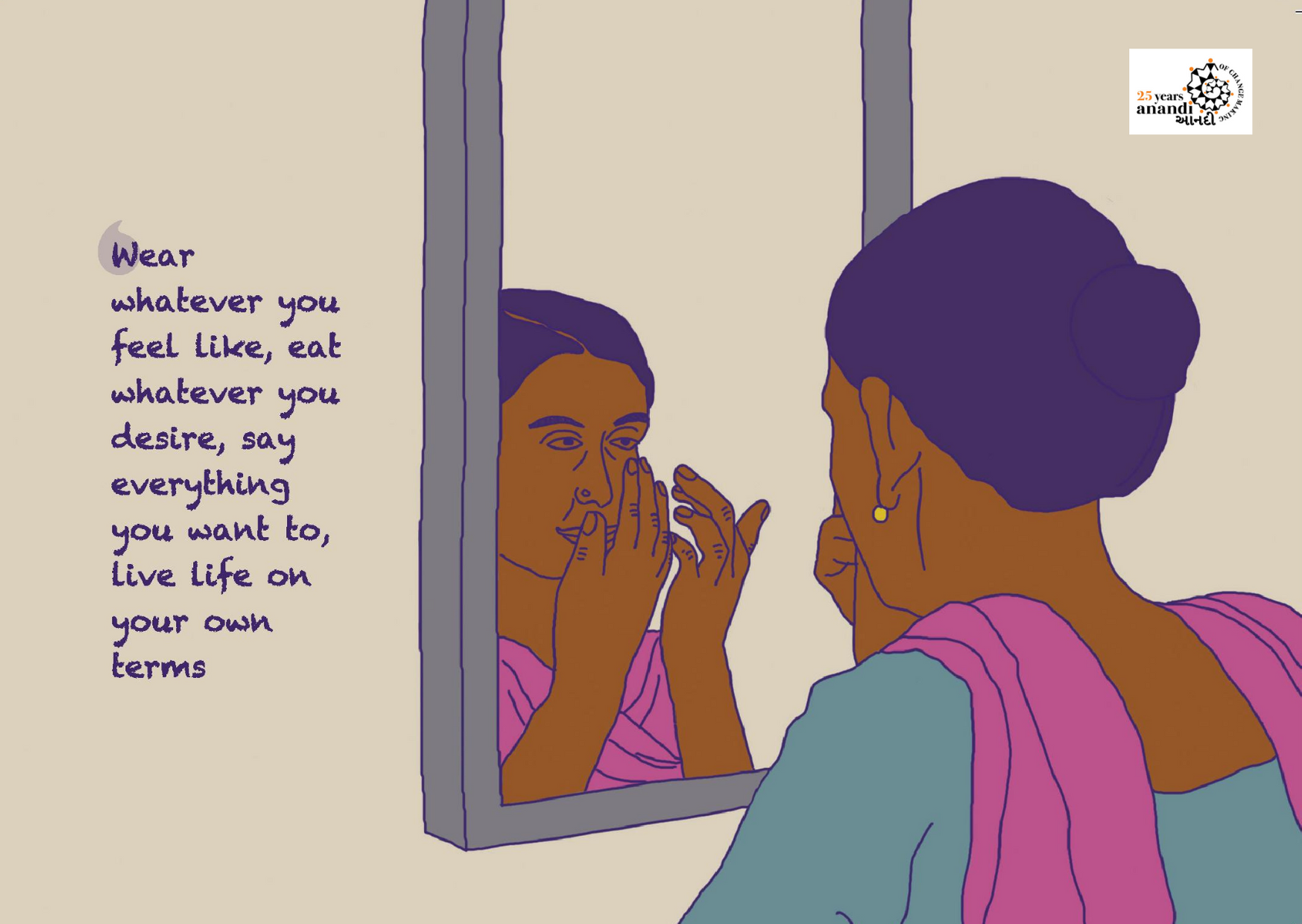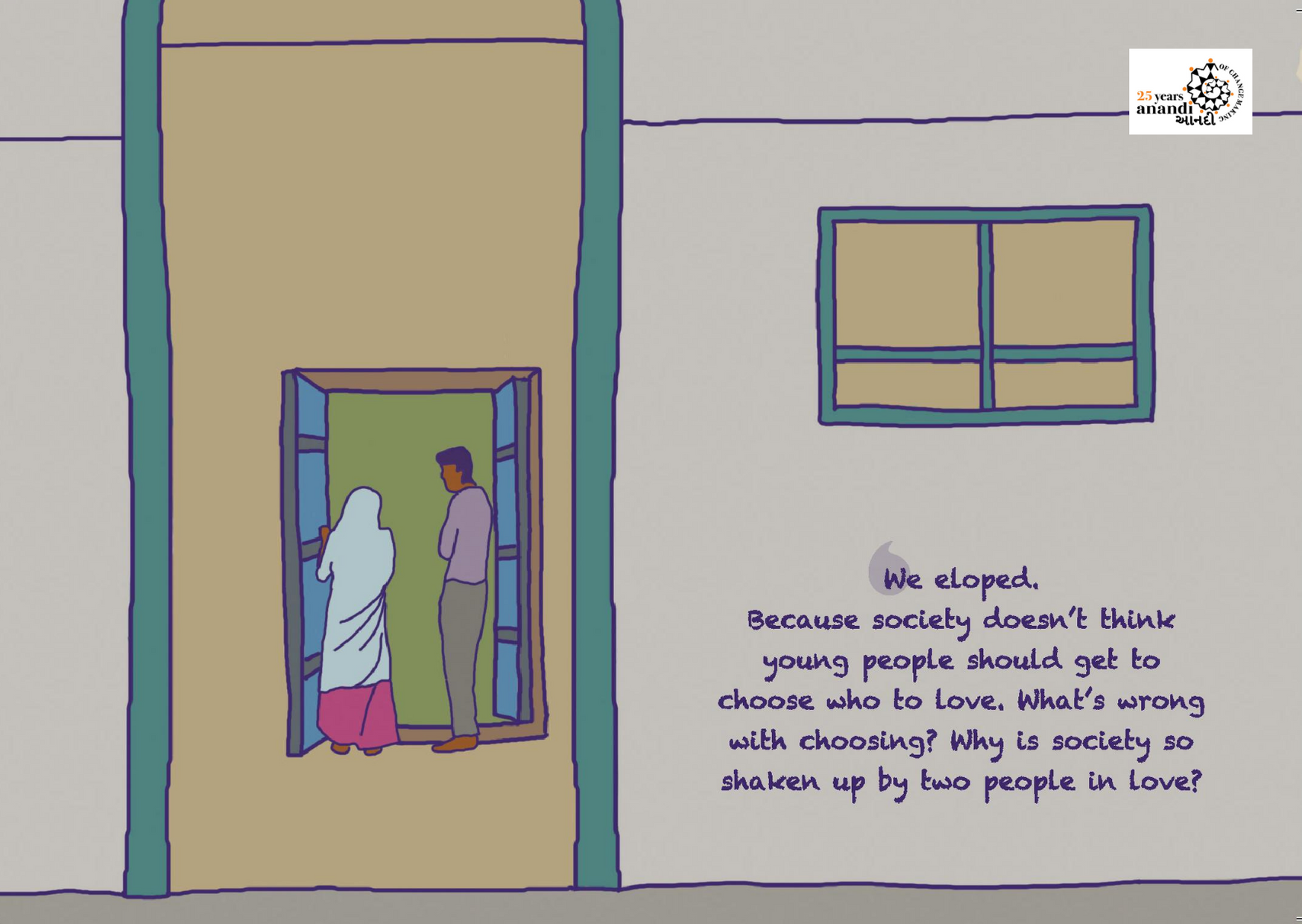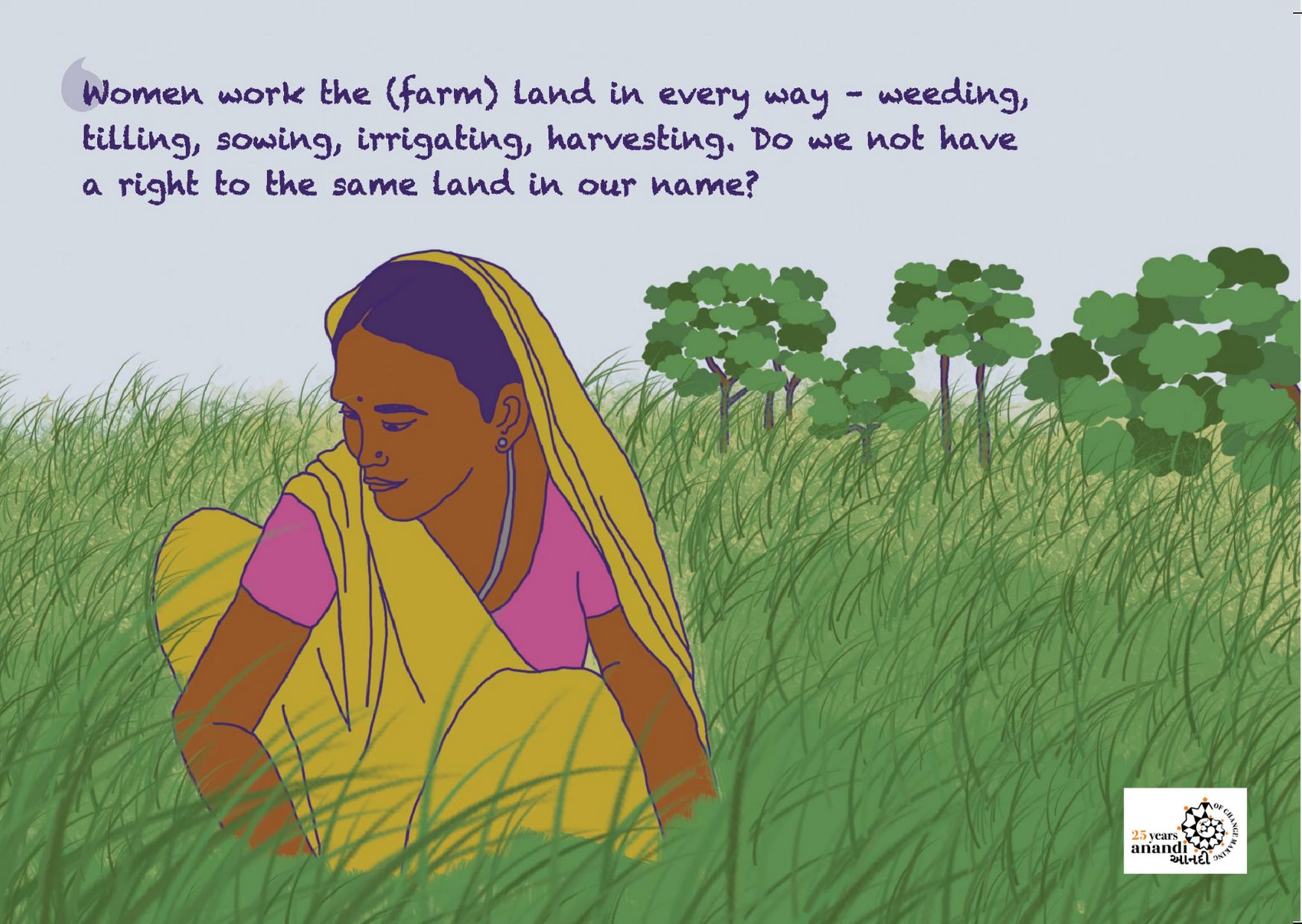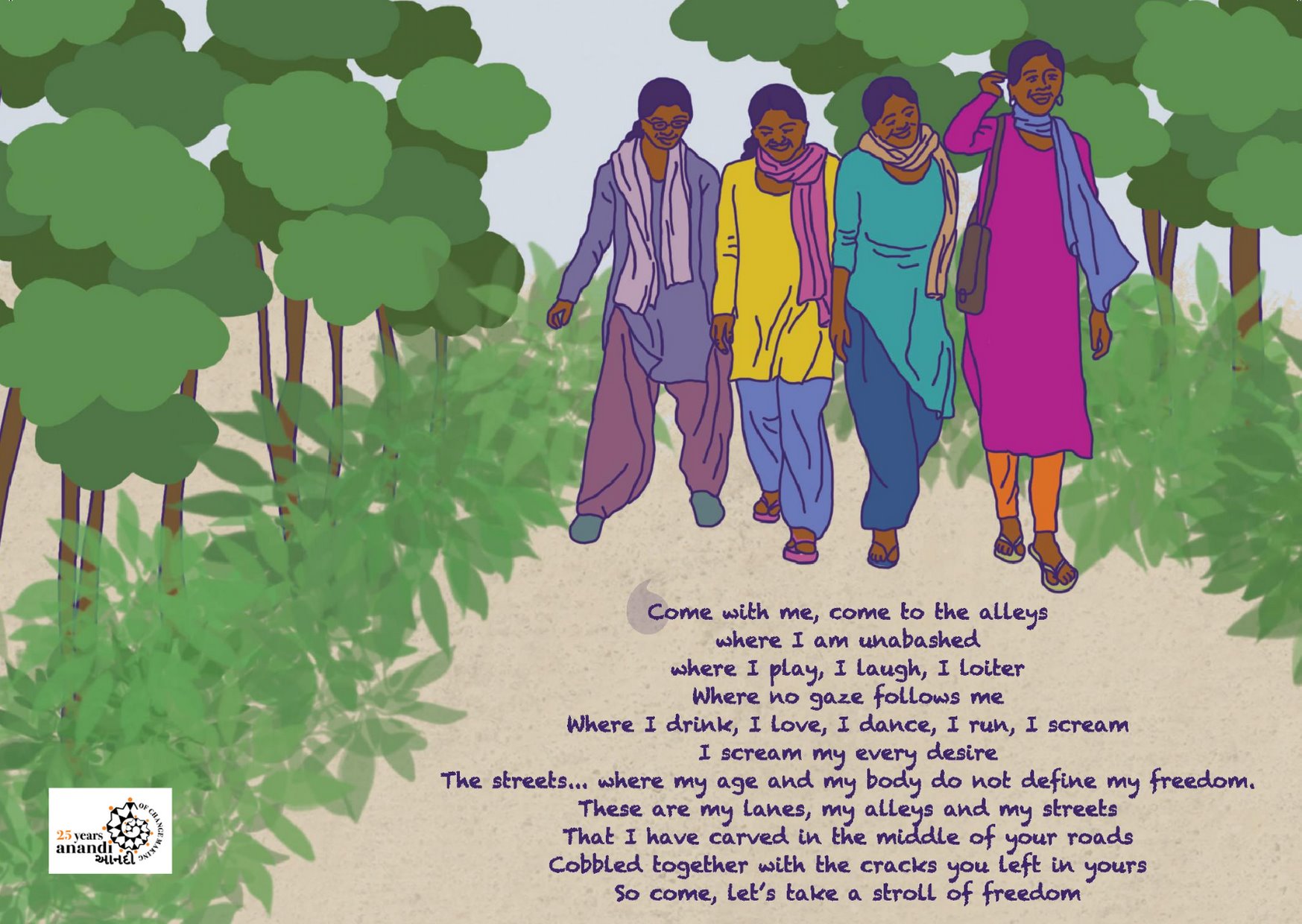Suno meri awaaz mujhe pankh mile hai aaj
Sangharsh ni gaatha
Not every early forced marriage ends in an unhappy union. But they do all reveal the same patterns: curbed dreams, lack of choice, and being thrust into domestic responsibility at a time when you could be exploring the world. Surekha and Mahesh bravely share their own stories and the impact of such a fundamental decision being taken away from young people by a society that doesn’t even see it as a question. Surekha asks poignantly: You bring your daughter up so lovingly, why would you not want her to continue to get the same kind of love in her marriage?
Sangharshni Gatha is one of the nine films produced by the Jagya Aapni (This Space is Ours) Campaign, a campaign of young women from remote parts of Gujarat coming together to reclaim physical and digital spaces. It is scripted, shot and edited by the same young women who are most directly affected by these stories. You can see the other films and the making of the campaign at: fb.com/jagyaapni. | Click to Download full post-card
Sapanu karyu sakar
A state-level cricketer. A saleswoman. The apple of her grandfather’s eye. Lalita Damor is all these things. She is also disabled. This short film captures her story, her support system, and her indomitable spirit. A reminder that what keeps young women from having identities beyond those assigned to them by societal conventions aren’t physical handicaps but social ones.
Sapnu Karyu Sakaar is one of the nine films produced by the Jagya Aapni (This Space is Ours) Campaign, a campaign of young women from remote parts of Gujarat coming together to reclaim physical and digital spaces. It is scripted, shot and edited by the same young women who are most directly affected by these stories. You can see the other films and the making of the campaign at: fb.com/jagyaapni | Click to Download full post-card
Samaj ni aanti-ghuti
In the name of tradition and roles of kinship, young women are forced into marriages that hold none of the love, understanding and compatibility they desire in a life-long partner. A number of women share their stories to ask the question: why do young women and men not have the space to make their own choices in love? In the name of what fragile societal rules do women have to endure loveless and violent marriages? Women who have actually broken the rules reveal that there is happiness waiting beyond the shackles of societal propriety.
Samaajni Aanti-Gunti is one of the nine films produced by the Jagya Aapni (This Space is Ours) Campaign, a campaign of young women from remote parts of Gujarat coming together to reclaim physical and digital spaces. It is scripted, shot and edited by the same young women who are most directly affected by these stories. You can see the other films and the making of the campaign at: fb.com/jagyaapni | Click to Download full post-card
Chhokrio ni jindagi nidar azad pankhi
In a traditionally conservative community where women were always told their limits ended at the threshold of the home, how do older women see the freedom that younger women are demanding? What are their discomforts? A generational shift becomes apparent in this film, as younger women lay out the things they have always been told about their mobility – that you must stay indoors, that the honour of society is located in you not ‘flaunting’ yourself, that you must become invisible to the extent possible. But they rise and they challenge these ideas: why must I be small? Why must the space I take up be negligible? Why can’t I – my desires, my dreams, my failings – be seen?
Chhokrioni Jindagi, Nidar Azaad Pankhi is one of the nine films produced by the Jagya Aapni (This Space is Ours) Campaign, a campaign of young women from remote parts of Gujarat coming together to reclaim physical and digital spaces. It is scripted, shot and edited by the same young women who are most directly affected by these stories. You can see the other films and the making of the campaign at: fb.com/jagyaapni | Click to Download full post-card
Ruye Ruye Rupiya Ganai
Around the world, family and societies continue to find cruel ways of clamping down on the choice of young people in love. In the name of ‘upholding the dignity of the community’, each method of criminalising choice is more violent than its predecessor. This film explores one such practice: the demand of an astronomical criminal fee (called davo) for choosing to elope. While it discusses the situation it leaves the young couple and their families in, the film also asks to what end this is okay. Is it really reducing the number of elopements? What about choosing a romantic partner challenges society thus? What spaces of choice are young women left with?
Rue Rue Rupiya Ganaay is one of the nine films produced by the Jagya Aapni (This Space is Ours) Campaign, a campaign of young women from remote parts of Gujarat coming together to reclaim physical and digital spaces. It is scripted, shot and edited by the same young women who are most directly affected by these stories. You can see the other films and the making of the campaign at: fb.com/jagyaapni | Click to Download full post-card
Mahila Khedut tarike ni odakh
Identity. So much frames an identity. A woman works all day in a farm, tends to its every need – but when someone says the word farmer, do you think of a woman? This film says that perhaps a big part of this lapse of identity is located in the fact that most women do not own their own land, and that the road to owning land is paved with red tape and resistance. Several young women farmers ask their husbands the question: if you think of me as your better half, why can’t you share half your resources with me?
Mahila Khedut Tarike Ni Olakh is one of the nine films produced by the Jagya Aapni (This Space is Ours) Campaign, a campaign of young women from remote parts of Gujarat coming together to reclaim physical and digital spaces. It is scripted, shot and edited by the same young women who are most directly affected by these stories. You can see the other films and the making of the campaign at: fb.com/jagyaapni | Click to Download full post-card
Raastein
What do I really want? – Young women reveal that’s the one question they have never been asked by a society that has always taken the decisions for them. What are my dreams, really? A number of young voices that have reclaimed their dreams from the throes of forced early marriage show us how they created their own paths. ‘Raaste’ – Deepa’s poem, poignantly ties together these narratives with the piercing question to men: why must our dreams always have to be cobbled together with the scraps you leave behind?
Raaste is one of the nine films produced by the Jagya Aapni (This Space is Ours) Campaign, a campaign of young women from remote parts of Gujarat coming together to reclaim physical and digital spaces. It is scripted, shot and edited by the same young women who are most directly affected by these stories. You can see the other films and the making of the campaign at: fb.com/jagyaapni. | Click to Download full post-card
